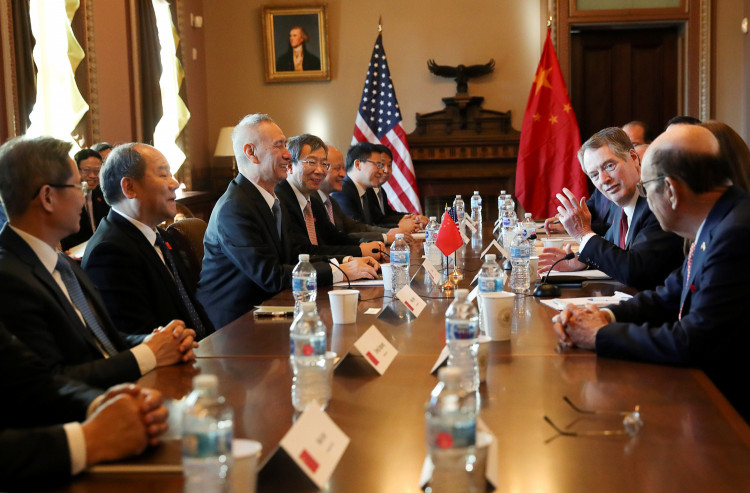China is not backing down and it vowed to fight the U.S. in the escalating trade war. In fact, the Chinese government already retaliated by announcing its intention to raise tariffs on $60 billion US goods and it will take effect on June 1.
The new tariff comes just days after Donald Trump revealed his order to raise tariffs on $200 billion worth of Chinese products. A day after the America president tweeted about the 25 percent increase for China exports, the Wall Street closed with big losses while the Asian markets' stock prices dipped as well.
Bloomberg noted that the year-long trade war between China and the U.S. got worst despite the reports that the trade talks were going well and negotiations are almost complete. The negative turn of events began after Trump declared the plan to levy higher taxes on goods coming from China. Washington warned China not to retaliate but just hours after issuing this warning, Beijing raised levies for U.S. imports.
According to the South China Morning Post, the products that will be badly hit by the higher tariffs include an array of food products such as cooking oils, wine, beer, frozen vegetables, pork products, beef, tea, coffee and fruit juices. In the non-food products, the most that will be hit are industrial minerals and chemicals, jewelry, clothing, metal products, textiles, machinery parts and home appliances.
China's Finance Ministry defended its government's move by saying it was a response to unilateralism and trade protectionism. "China hopes the United States will return to the right track of bilateral trade negotiations, work together with China and meet China halfway to reach a mutually beneficial and win-win agreement on the basis of mutual respect and equality," SCMP quoted the ministry as saying in a statement.
Meanwhile, CNBC reported that economists are saying that the retaliatory tariffs are affecting the American farmers in a bad way. They are being hit on all sides so they are the ones suffering more from this trade war.
"The retaliatory tariffs placed on U.S. farmers from China are a net negative on the industry," Michael Nepveux, an economist at the American Farm Bureau Federation, told the news outlet on Tuesday.
Finally, he added that is the most challenging time for the farmers, especially because the new tariffs from China are set to be imposed at the period just after the Midwest suffered from historic floods. The farmers barely recovered from the disaster and another one is coming this June.





